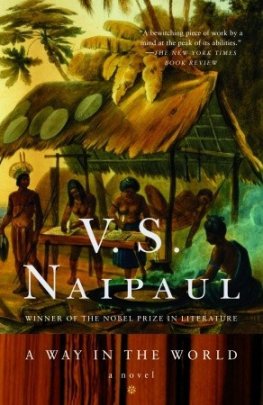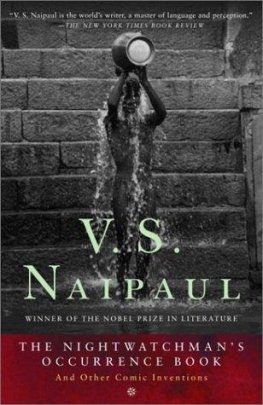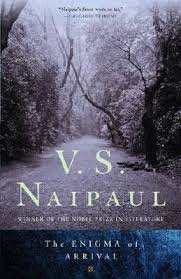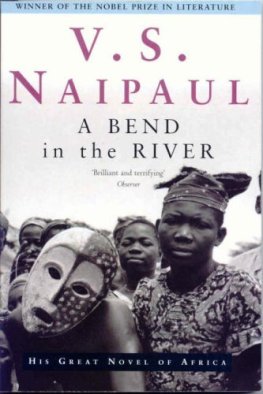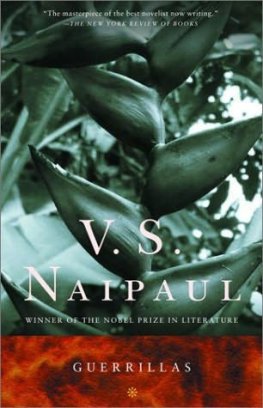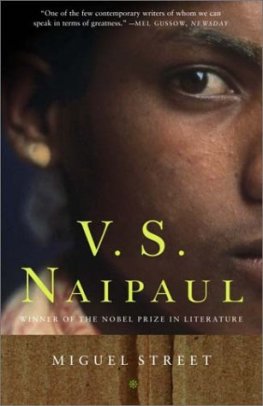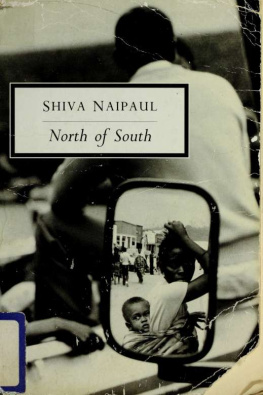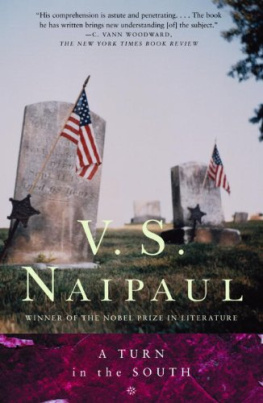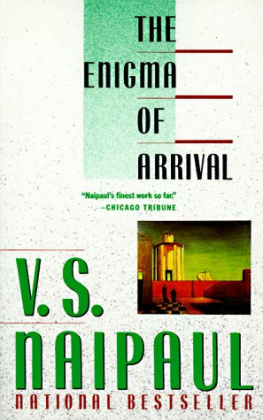V. S. Naipaul - Half a Life
Here you can read online V. S. Naipaul - Half a Life full text of the book (entire story) in english for free. Download pdf and epub, get meaning, cover and reviews about this ebook. year: 2009, publisher: Vintage, genre: Art. Description of the work, (preface) as well as reviews are available. Best literature library LitArk.com created for fans of good reading and offers a wide selection of genres:
Romance novel
Science fiction
Adventure
Detective
Science
History
Home and family
Prose
Art
Politics
Computer
Non-fiction
Religion
Business
Children
Humor
Choose a favorite category and find really read worthwhile books. Enjoy immersion in the world of imagination, feel the emotions of the characters or learn something new for yourself, make an fascinating discovery.

- Book:Half a Life
- Author:
- Publisher:Vintage
- Genre:
- Year:2009
- Rating:3 / 5
- Favourites:Add to favourites
- Your mark:
- 60
- 1
- 2
- 3
- 4
- 5
Half a Life: summary, description and annotation
We offer to read an annotation, description, summary or preface (depends on what the author of the book "Half a Life" wrote himself). If you haven't found the necessary information about the book — write in the comments, we will try to find it.
Half a Life — read online for free the complete book (whole text) full work
Below is the text of the book, divided by pages. System saving the place of the last page read, allows you to conveniently read the book "Half a Life" online for free, without having to search again every time where you left off. Put a bookmark, and you can go to the page where you finished reading at any time.
Font size:
Interval:
Bookmark:
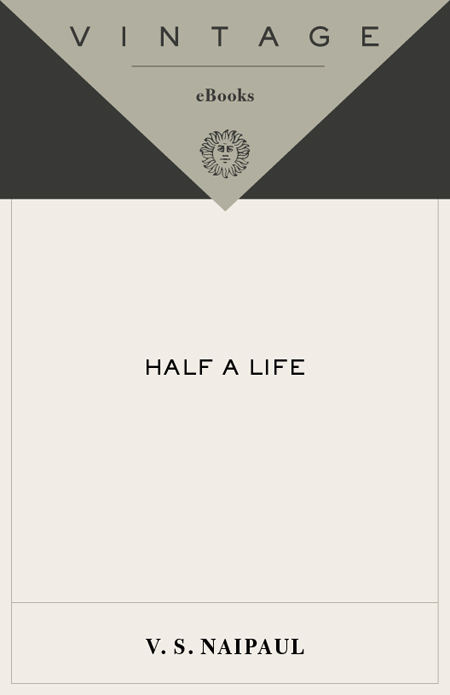
Half a Life
Stunning. Brilliant. A story of remarkable economy. Naipaul writes with the haunting efficiency of an ancient legend powerful and unsettling.
The Christian Science Monitor
A superb exercise, in miniature, of Mr. Naipaul's finest gift, a revelation of history's disastrous impact on private life.
The Wall Street Journal
Naipaul is a master of English prose, and the prose of Half a Life is as clean and cold as a knife.
J. M. Coetzee, The New York Review of Books
Full of memorable passages that astonish by their economy and precision. Naipaul has clearly not lost his gift of summing up the sights and smells of a place within a few sentences. His powers as a shrewd observer communicate themselves strongly.
The Boston Globe
As sly and funny as anything Naipaul has written. Nobody who enjoys seeing English beautifully controlled should miss this novel.
Sunday Times (London)
Brilliant. Profoundly intimate. Naipaul is a magical storyteller. He weaves a complex, nuanced tapestry of colonial and postcolonial character and attitudes, of radical notions and movements, of the immense mysteriousness of singular personal identity. Naipaul, at the peak of his powers, never wastes a word. Half a Life affirms the wisdom of the Swedish Academy. It's a humane book, full of courage, wisdom and memorable reading.
The Baltimore Sun
Magnificent. With deft, elliptical plotting, Half a Life evokes the draining cost of [a rootless] way of living. [It consists] of several journeys woven brilliantly into a larger, more restless spiritual one [and] offers a string of gemlike moments, ones where the intricate latticework of colonial identity rises up and makes itself brutally and indelibly felt.
Dallas Morning News
Half a Life confirms Naipaul's stature as the greatest living analyst of the colonial and postcolonial dilemma. Those who have never approved of that analysis, and have objected over the years to what they see as Naipaul's fatalism, snobbery or even racism, may find in this book the surprise of a submerged radicalism, a willingness to see things from the eyes of the disadvantaged.
James Wood, The New Statesman
Pure magic. I cannot think of another novelist with Naipaul's feeling for the distinctiveness of cultures. A fine book and no one but Naipaul could have written it.
S. R. B. Iyer, The Columbus Dispatch
Nuanced and evocative. Here, sentence by sentence, is the consummate craftsmanship, the perception, the precision, the style the Nobel committee lauded as vigilant. Here, too, is Naipaul giving rein to comical talents that may not have been at full stretch since he published the incomparable A House for Mr. Biswas in 1961.
The Globe and Mail
[A] gem of a novel. [Naipaul's] descriptive powers are masterful, and his language spare and economical. Every word counts and conveys meaning. A very well-crafted and brilliant novel of ideas.
The Orlando Sentinel
A surprise and a pleasure. Naipaul has produced the most complex and demanding body of work of any post-war British writer. In sentences of great precision and balance, [he] reanimates the dilemmas of late and post-colonial experience. He is without peer.
The Observer Review
Beautifully imagined and subtly satiric. Naipaul presents [a] disturbing social vision in prose that seems stripped of all emotion and yet proves emotionally powerful.
Richmond Times-Dispatch
Naipaul writes a prose as clean as a stripped wand, but however plain the language, the ideas it delivers are not. He is still peerless as a deviser of the shocking icon. He builds a scene of metaphysical loss as compelling as any Renaissance canvas of the expulsion from paradise.
The Independent
A challenging, tantalizing book that blossoms in the imagination of the reader.
San Jose Mercury News
Almost casually, but beautifully, achieved. Captures in miniature the trajectory of Naipaul's oeuvre.
The Times Literary Supplement
The latest example of how powerful the search for identity can be in literature.
The Buffalo News
A brief, insightful study of the development of a highly inventive writer.
The Seattle Times
What Joseph Conrad was to his age, V. S. Naipaul is to ours. Conrad's meditation on the world of imperialism has its worthy counterpart in Naipaul's expansive account of postcolonial realities.
The New Leader
Half a Life
V. S. Naipaul was born in Trinidad in 1932. He went to England on a scholarship in 1950. After four years at Oxford he began to write, and since then he has followed no other profession. He is the author of more than twenty books of fiction and nonfiction and the recipient of numerous honors, including the Nobel Prize in 2001, the Booker Prize in 1971, and a knighthood for services to literature in 1990. He lives in Wiltshire, England.
ALSO BY V. S. NAIPAUL
NONFICTION
The Writer and the World
Between Father and Son: Family Letters
Beyond Belief: Islamic Excursions Among the Converted Peoples
India: A Million Mutinies Now
A Turn in the South
Finding the Center
Among the Believers
The Return of Eva Pern (with The Killings in Trinidad)
India: A Wounded Civilization
The Overcrowded Barracoon
The Loss of El Dorado
An Area of Darkness
The Middle Passage
FICTION
A Way in the World
The Enigma of Arrival
A Bend in the River
Guerrillas
In a Free State
A Flag on the Island
The Mimic Men
Mr. Stone and the Knights Companion*
A House for Mr. Biswas
The Suffrage of Elvira*
Miguel Street
The Mystic Masseur
Published in an omnibus edition entitled The Nightwatchman's Occurrence Book
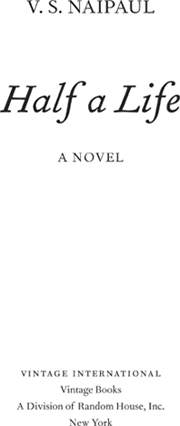
N. K. N.
A Visit from Somerset Maugham
W ILLIE C HANDRAN asked his father one day, Why is my middle name Somerset? The boys at school have just found out, and they are mocking me.
His father said without joy, You were named after a great English writer. I am sure you have seen his books about the house.
But I haven't read them. Did you admire him so much?
I am not sure. Listen, and make up your own mind.
And this was the story Willie Chandran's father began to tell. It took a long time. The story changed as Willie grew up. Things were added, and by the time Willie left India to go to England this was the story he had heard.
*
T HE WRITER (Willie Chandran's father said) came to India to get material for a novel about spirituality. This was in the 1930s. The principal of the maharaja's college brought him to me. I was doing penance for something I had done, and I was living as a mendicant in the outer courtyard of the big temple. It was a very public place, and that was why I had chosen it. My enemies among the maharaja's officials were hounding me, and I felt safer there in the temple courtyard, with the crowds coming and going, than in my office. I was in a state of nerves because of this persecution, and to calm myself I had also taken a vow of silence. This had won me a certain amount of local respect, even renown. People would come to look at me being silent and some would bring me gifts. The state authorities had to respect my vow, and my first thought when I saw the principal with the little old white fellow was that it was a plot to make me talk. This made me very obstinate. People knew that something was afoot and they stood around to watch the encounter. I knew they were on my side. I didn't say anything. The principal and the writer did all the talking. They talked about me and they looked at me while they talked, and I sat and looked through them like someone deaf and blind, and the crowd looked at all three of us.
Font size:
Interval:
Bookmark:
Similar books «Half a Life»
Look at similar books to Half a Life. We have selected literature similar in name and meaning in the hope of providing readers with more options to find new, interesting, not yet read works.
Discussion, reviews of the book Half a Life and just readers' own opinions. Leave your comments, write what you think about the work, its meaning or the main characters. Specify what exactly you liked and what you didn't like, and why you think so.

